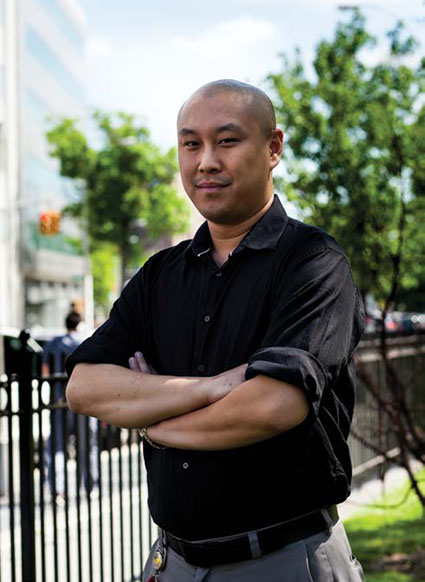The Most Important Leaders In The Union
June 10, 2016
The most important title among the many in 1199SEIU is Delegate. It is the delegates alone who comes into daily direct contact with workers in their departments and institutions. And it’s the delegate’s behavior that most often colors the members’ attitude toward the Union as a whole. Our Life And Times recently spoke with delegates to explore their approach to a changing healthcare industry and workplace.
“Because I work in a Southern ‘right-to-work’ state, I was anti-union when I started at Terra Vista NH about three years ago,” says Kaydra Bonamy a CNA and delegate at the Orlando, Fl., nursing home. “My attitude was based not on experience, but on a lack of knowledge.” Today, Bonamy says that among her chief challenges as a delegate is “to get the other workers to feel what I feel by helping them to see what I’ve seen.”
Her Union toolbox, however, is not different from that of an 1199SEIU delegate any other region. For veteran delegate Jacynth Stewart, it was also her commitment and passion that drew co-workers to her. Stewart is a food service worker at Mt. Sinai-Beth Israel in Manhattan and a longtime member of the Union’s executive council. “Our situation has changed over the years, but what I do to represent members stays the same.” Stewart says. She also cites the importance of constant open communications.
She began at BI in 1984, less than a week before a 47-day citywide strike. “I was on the picket line with my two young daughters before I got my first check,” she says with pride. A year later, the outspoken Stewart was convinced to become a delegate by members in her department. She made sure she learned the contract. “I tell members that our contract is our bible, and that they are safe if they follow it, she notes. “Years ago management was more lax, but today they run the hospital like a business, so now everything is much tougher,” Fortunately, she notes, there are strong labor-management committees in the departments to help head off some of the toughest issues. “Short staffing during a time when hospitals say they are losing money is a problem for us, but again we go the contract and policies we’ve agreed to guide us,” she says.
A tough issue for Stewart is dealing with members who expect to be bailed out even when they violate contract provisions such as excessive absences or lateness. Says Stewart, “I tell these members that there’s just so much I can do.”
“Some members misunderstand how much delegates can do,” says Jian Mei, a delegate and pharmacy tech at New York Presbyterian Hospital in Manhattan. “I will do my best to defend and protect all members, but I tell them that they must face the consequences when they violate the contract and I’ll be there to help how I can.”
Unlike Bonamy, Mei was not new to unions when he began at Presbyterian about seven year ago. “My mother was an 1199 homecare worker, and I walked picketlines with her and also benefited from Union programs such as child care and camp,” he says.
Like Bonamy, Mei is grateful to the mentoring he received from older delegates and his Union organizer. And like Bonamy, he was asked to become a delegate not only for his knowledge, but also for his passion. “I’m glad members know that I’ll go toe to toe with management for every one of them,” he says.
“For me, mutual respect, an open mind and good communications are always essential, but I believe there also should be more understanding and support for younger delegates like me,” Mei says. “Older delegates, for example, should welcome different approaches. And younger delegates should be given space to try those approaches. For example, maybe in some situations social media might make more sense than leaflets.”
Says Mei, “I’m always learning through constant communication and keeping an open mind.”
“First, I let everyone know that we are all family at the workplace,” Bonamy says. “We play together, we cry together and we love our patients together.
“I also listen to everyone, whether they are in the Union or not, and I publicize every Union victory and activity, because it’s important that workers know we are winning,” Bonamy stresses. She does not minimize the need for support.
“I realize that delegate can never have too much training and that we do a better job when we know that our organizers have our back,” she says.
“My organizer has always been there for me.” Before Bonamy became a delegate, her coworkers recognized her passion and people skills. One older member wept with joy when she learned that Bonamy had agreed to become a delegate.


